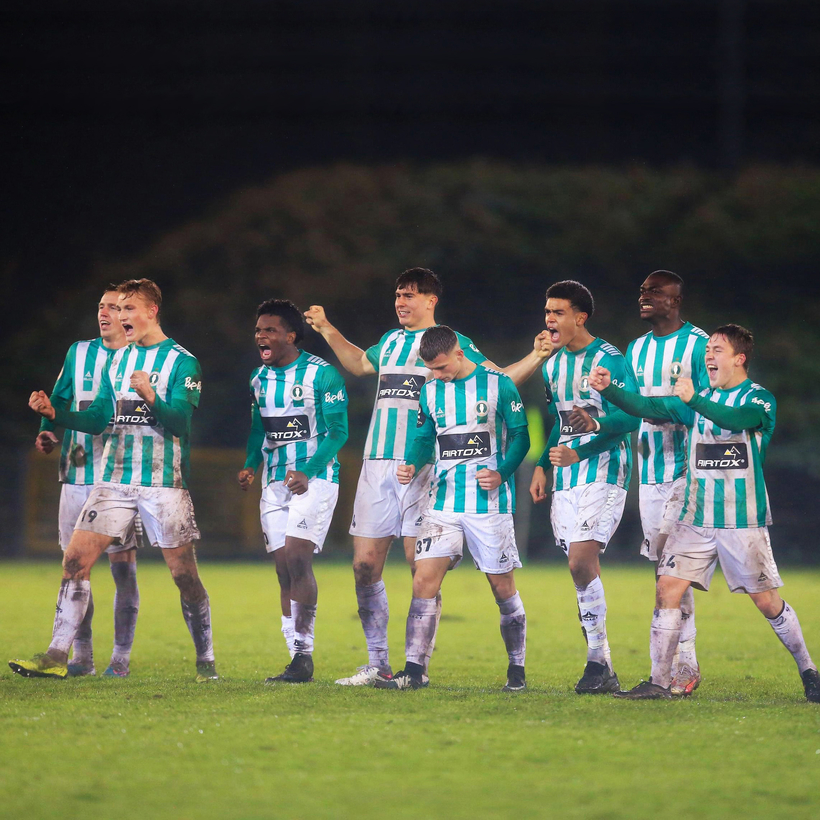On a cold early-April evening under a clear sky at Gladsaxe Stadium, just outside of Copenhagen, the third-tier Danish soccer club A.B. (short for Akademisk Boldklub) squared off against rival Nykøbing. They came from the island of Falster, in southern Denmark.
The crowd of more than 900 cheered on the action. The Carlsberg flowed. But amid the chants sung in Danish and the monotonic delivery of the in-game announcer, there were hints of English. “Not offside, ref!” “Gotta make that pass. Come on!”


